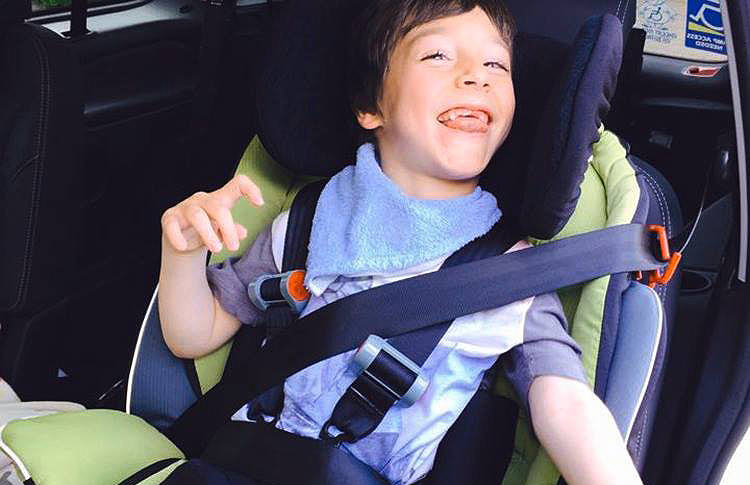
This unique information about specialist car seats and harnesses is from the Research Institute for Disabled Consumers
Good postural support is important for many physically disabled children.
For some babies and small children, standard child car seats provide enough postural support. Some children, however, will need more specialist seating.
- A seat that can be tilted backwards – especially if it has a good head support – can help maintain an upright posture.
- Side prompts give extra support to the trunk and head. Some seats also have adjustable padding to help ensure a good fit.
- Adjustable seat length and back height help ensure a good fit, which supports good posture.
- A pommel helps guard against the child’s legs coming together or crossing.
- Footrests can help some children maintain an upright posture by giving them something to push against.
- A tray allows the child to support themselves with their forearms.
Car seats
You can also get specialist child car seats that swivel or slide out to help with getting in and out.
See specialist child car seats including features, prices and suppliers (PDF)
A range of accessories is available, which includes spare cushions and covers, padded chest supports and headrest speakers.
Older children may be more comfortable on the adult car seat, as long as it gives them enough support and they can wear the seat belt safely. However, remember that children under 135cm tall (about 4′ 5″) must use an appropriate child car seat. If they need support to sit upright, there are a number of harnesses that attach to the seat. Always use the car seat belt too.
Specialist child harnesses
See specialist child harnesses including features, prices and suppliers (PDF)
Safety
Some equipment will also be available second-hand. It is vital to check the history of any second-hand equipment to ensure no damage or previous involvement in a road traffic collision.
Specialist vehicles – WAVs
A wheelchair accessible vehicle (WAV) allows a wheelchair user to travel in their chair. This means they can get the benefit of their own supportive seating system, and that they don’t have to transfer or be transferred into the car. It also eliminates the need for the carer to load the wheelchair into the vehicle.

The Research Institute for Disabled Consumers, the UK’s leading expert in user-centred research involving disabled and older consumers, has an active consumer forum
You can also contact your nearest Mobility Centre for information and advice.
